Top 10 Essential Tips for Preparing Your Car for Winter
As the colder months approach, it’s crucial to ensure your vehicle is ready to face the harsh winter conditions. Preparing your car for winter involves several steps that help maintain performance, safety, and reliability. In this comprehensive guide, we will walk you through the top 10 essential tips for preparing your car for winter, making sure you’re well-prepared for the cold weather ahead.
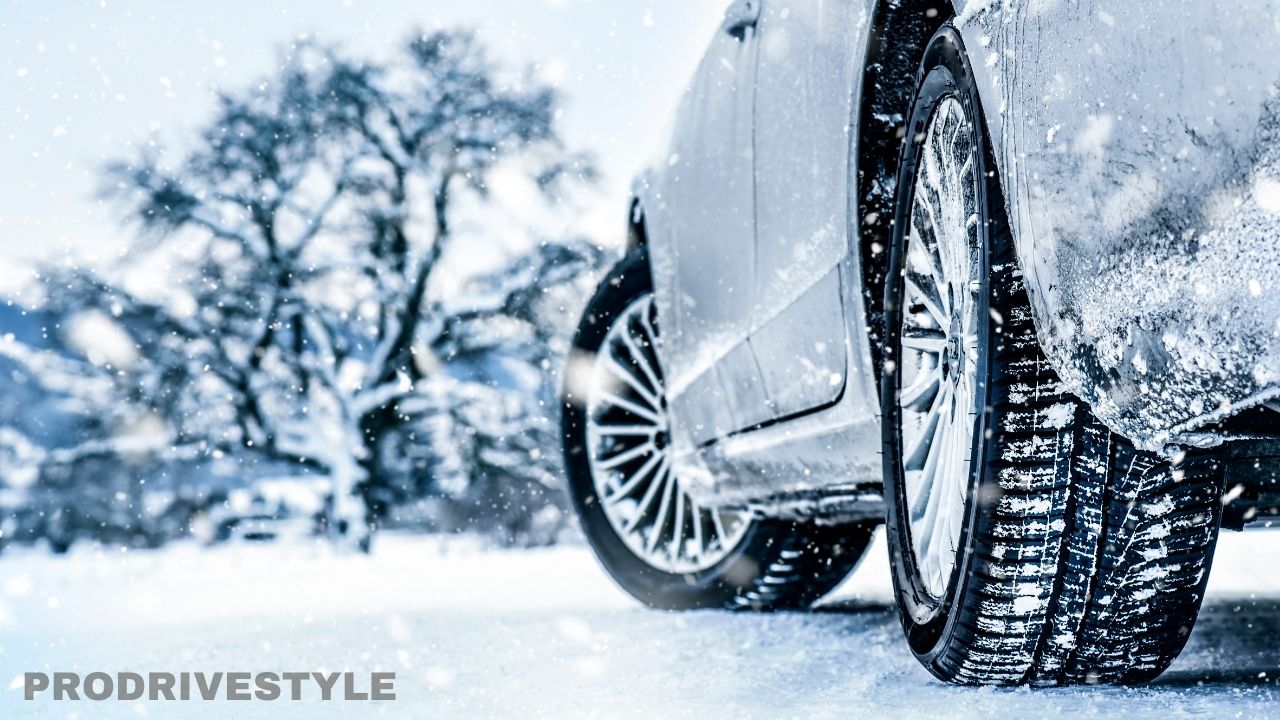
1. Check Your Battery
Cold weather can be particularly harsh on your car’s battery. Before winter sets in, check your battery’s health and ensure it is fully charged. If your battery is over three years old, consider getting it tested by a professional. Keep the battery terminals clean and free of corrosion to prevent starting issues. A weak battery is more likely to fail in cold conditions, so it’s essential to address any issues early.
Signs of a Weak Battery
Common signs of a weak battery include slow engine cranking, dim headlights, and the battery warning light on your dashboard. If you notice any of these signs, it’s time to get your battery checked. Ensuring a strong battery is a key part of preparing your car for winter.
ACDelco Gold 48AGM (88864541) 36 Month Warranty
2. Inspect Your Tires
Winter driving requires tires that can handle slippery and icy conditions. Check your tires for adequate tread depth and make sure they are properly inflated. Consider switching to winter tires, which are designed to provide better traction in snow and ice. Don’t forget to inspect your spare tire as well.
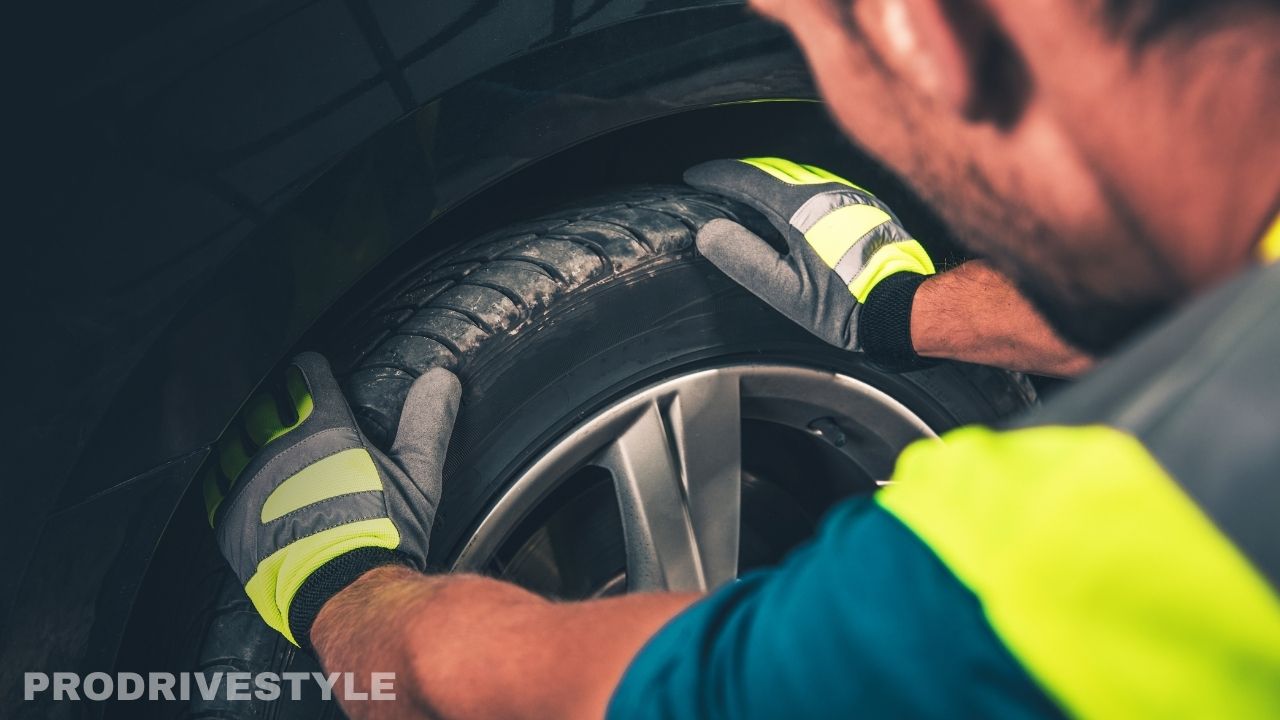
Importance of Tread Depth
Adequate tread depth is crucial for maintaining traction on wet and icy roads. Use a tread depth gauge to measure the depth, and if it’s below the recommended level, it’s time to replace your tires. Proper tire maintenance is essential for preparing your car for winter conditions.
3. Test Your Antifreeze
Antifreeze, or coolant, is essential for protecting your engine from freezing temperatures. Check the antifreeze level in your car’s coolant reservoir and top it up if needed. It’s also a good idea to test the antifreeze mixture to ensure it provides adequate protection against freezing. The ideal mixture is typically 50% water and 50% antifreeze.
How to Check Antifreeze Levels
To check the antifreeze levels, ensure the engine is cool and locate the coolant reservoir. The coolant should be between the minimum and maximum marks. If it’s low, add a mixture of water and antifreeze as specified in your owner’s manual. Testing and maintaining antifreeze levels is a critical step in preparing your car for winter.
4. Change Your Oil
Cold weather affects the viscosity of your engine oil, making it thicker and harder to circulate. Check your owner’s manual for the recommended oil viscosity for winter driving. Changing to a thinner oil can help ensure your engine runs smoothly in cold conditions. Regular oil changes are crucial for maintaining engine health.
Winter-Grade Oil
Winter-grade oil, often marked with a “W” (e.g., 5W-30), is designed to flow better at lower temperatures. Using the correct oil grade for winter can help improve your engine’s performance and longevity. An oil change is a key component in preparing your car for winter.
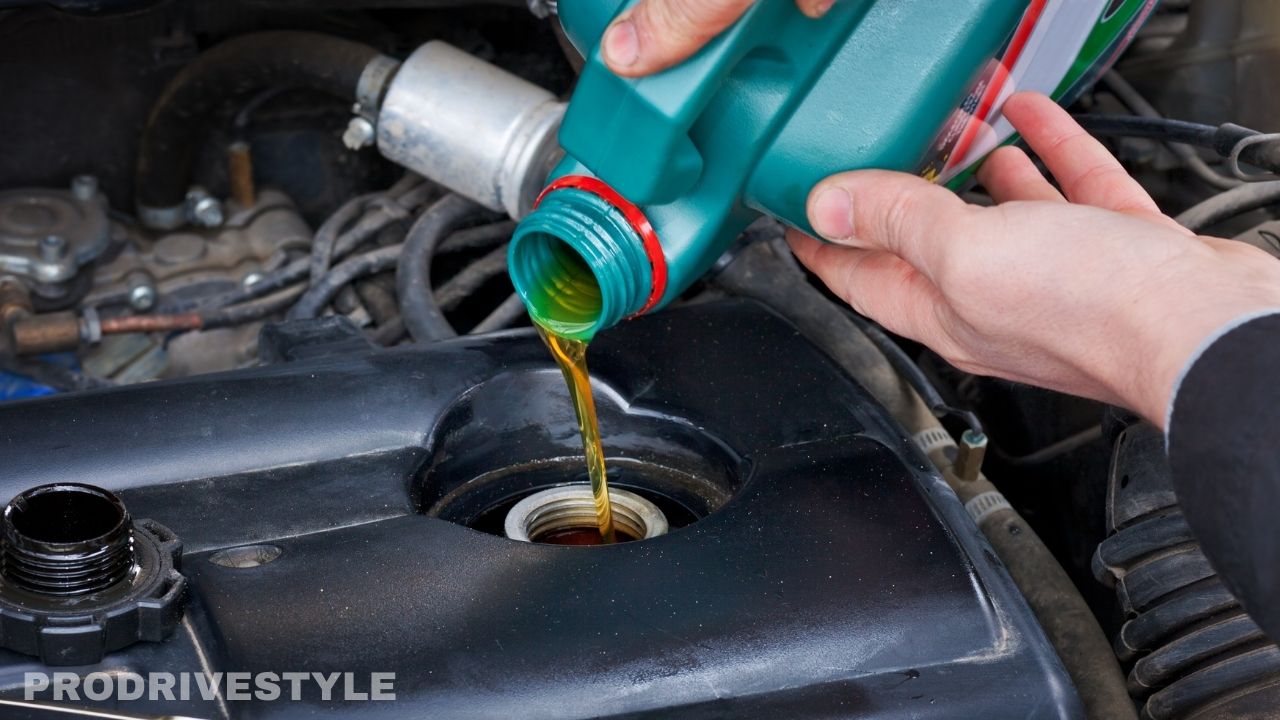
5. Check Your Brakes
Winter roads can be treacherous, and having fully functional brakes is essential for safe driving. Inspect your brake pads and rotors for wear and tear, and ensure your brake fluid is at the proper level. If you notice any unusual noises or reduced braking performance, have your brakes checked by a professional.
Brake Fluid Maintenance
Brake fluid absorbs moisture over time, which can reduce braking efficiency. Regularly check the brake fluid level and replace it as recommended by your vehicle manufacturer, typically every two years. Ensuring your brakes are in top condition is vital when preparing your car for winter.
6. Inspect Wiper Blades and Washer Fluid
Visibility is critical during winter driving. Check your wiper blades for any signs of wear or damage and replace them if necessary. Ensure your windshield washer fluid is filled with a winter-specific formula that won’t freeze in cold temperatures. It’s also helpful to carry extra washer fluid in your car.
Winter Wiper Blades
Consider investing in winter wiper blades, which are designed to handle snow and ice better than regular blades. These blades have a protective coating that prevents ice buildup and ensures clearer visibility. Good wipers and washer fluid are essential for preparing your car for winter.
7. Keep an Emergency Kit
Winter weather can be unpredictable, and it’s essential to be prepared for emergencies. Keep an emergency kit in your car that includes items such as a flashlight, blanket, ice scraper, shovel, jumper cables, and non-perishable snacks. Having these items on hand can be a lifesaver if you get stranded in cold weather.
Everlit Survival Car Emergency Kit
Essential Items for Your Emergency Kit
Your emergency kit should also include a first aid kit, tire chains, and a bag of sand or cat litter for traction. Make sure your cell phone is fully charged and consider keeping a portable charger in your kit. An emergency kit is crucial when preparing your car for winter.
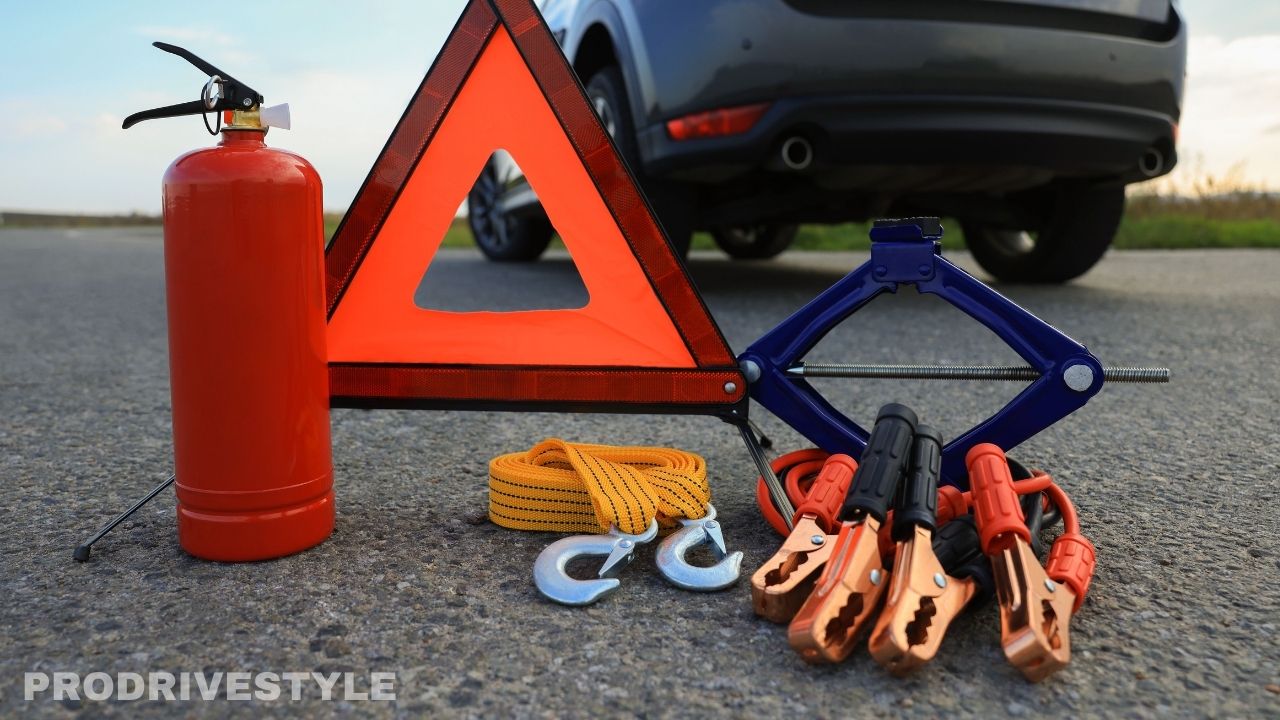
8. Check Your Lights
Shorter days and longer nights mean you’ll be using your car’s lights more frequently. Ensure all your lights, including headlights, taillights, brake lights, and turn signals, are functioning correctly. Replace any burnt-out bulbs and clean the light lenses to improve visibility.
Upgrade to LED Lights
Consider upgrading to LED lights, which provide brighter illumination and consume less power than traditional halogen bulbs. This can enhance your visibility and safety during winter driving. Proper lighting is essential for preparing your car for winter.
9. Protect Your Car’s Exterior
Winter conditions can be harsh on your car’s exterior. Regularly wash your car to remove road salt and grime, which can cause corrosion. Apply a coat of wax to protect the paint and consider using a car cover if you park outside.
Underbody Protection
Don’t forget to clean and protect the underbody of your car, as it is particularly susceptible to corrosion from road salt. Using an underbody sealant can provide additional protection against rust. Protecting your car’s exterior is a key step in preparing your car for winter.
10. Plan Your Trips
Winter weather can be unpredictable, so it’s essential to plan your trips carefully. Check the weather forecast before heading out and allow extra time for your journey. Keep your gas tank at least half full to prevent fuel line freeze-up and ensure you have a fully charged cell phone for emergencies.
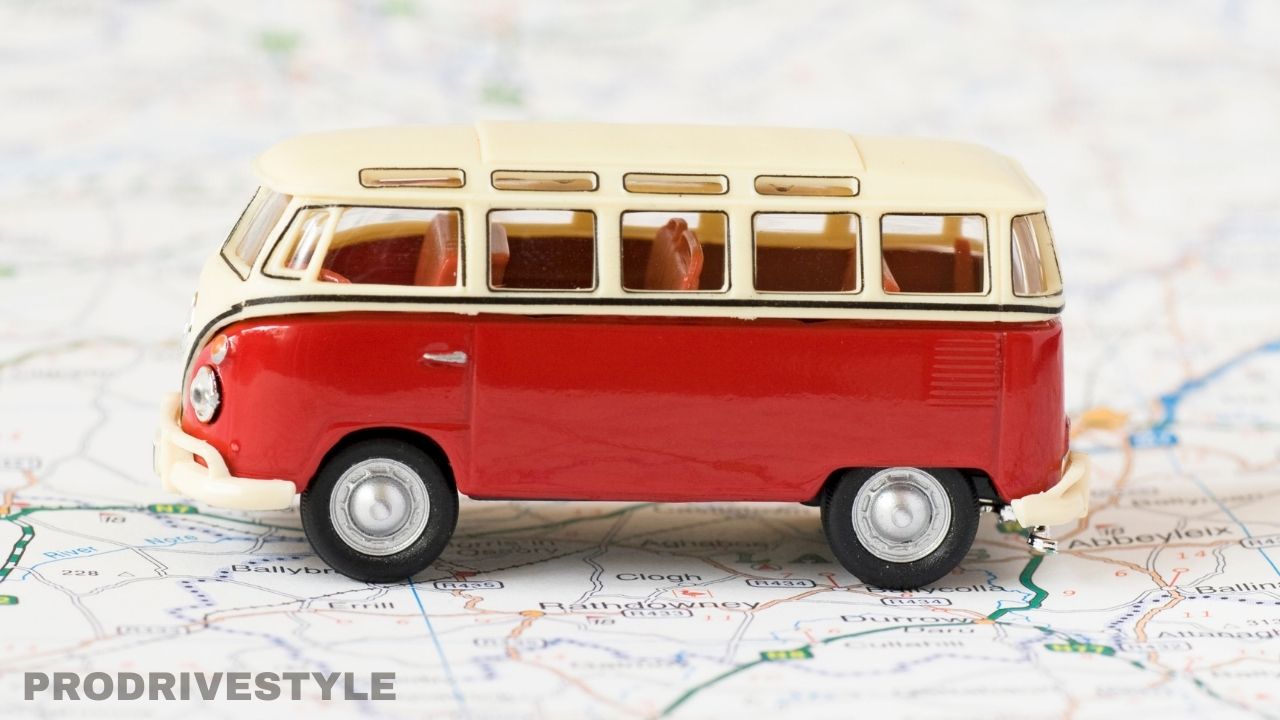
Stay Informed
Stay informed about road conditions and potential hazards by listening to traffic updates and using navigation apps that provide real-time information. Knowing what to expect can help you drive more safely and confidently in winter conditions. Proper trip planning is vital when preparing your car for winter.
Conclusion
By following these top 10 essential tips for preparing your car for winter, you can ensure your vehicle is ready to handle the challenges of cold weather. Regular maintenance and preparation can help keep your car running smoothly and safely throughout the winter months. Investing time in these precautions now can save you from potential issues and ensure a worry-free winter driving experience.
Further Reading
For more detailed information, you can refer to the following sources:
